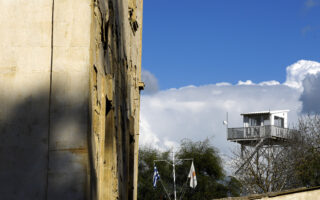Greece, Cyprus and Israel after October 7

The Hamas attack on southern Israel on October 7 confirmed Israelis’ worst fears. Despite the security barriers they have erected and their constant state of preparedness for war, it’s evident that fatal mistakes can still occur. The primary reason for this outcome appears to be the significant domestic social turmoil that Israel has witnessed in recent months. This turmoil has had an impact on one of the world’s most effective intelligence agencies and one of the most formidable armed forces. It serves as a reminder that the institutions of a democratic state are at their strongest when their society is unified.
Most significantly for Israel, its surrounding region is once again becoming unwelcoming, if not outright hostile. The only secure escape route is the corridor provided by Cyprus and Greece leading to Europe. This perception initially took root in August 2010 when Prime Minister Benjamin Netanyahu visited Athens. Since then, successive Greek governments have consistently demonstrated that fostering strong relations with Israel is a core element of the country’s national strategy. However, it is equally crucial for Israel to adopt this as a strategic imperative, which wasn’t necessarily the case until recently. Establishing a strategic alliance between these two nations remains of paramount importance and is not compromised by improved relations with other antagonostic states.
To strengthen Greek-Israeli relations, collaboration on joint defense projects is a promising avenue. There are several ideas worth exploring. For instance, the possibility of establishing a radar system to oversee the Eastern Mediterranean from Crete to Israel has been discussed and remains a viable option. This was a topic of conversation in Tel Aviv back in March 2019. Additionally, the recent offensive by Hamas demonstrated the limitations of Israeli anti-aircraft systems due to the saturation caused by a large number of low-cost aerial vehicles flooding the sky. It is in the mutual interest of both countries to engage in joint scientific research to find cost-effective and reliable solutions for such scenarios.
What other implications will all of this have for Greece and Cyprus? In the initial phase, we can anticipate a revival of interest in establishing energy and optical fiber networks connecting Greece, Cyprus and Israel. Plans are already under way for the Euro-Asia Interconnector, an underwater power cable, to extend to Cyprus, and the next logical step would be interconnection with Israel. Furthermore, recent developments in the Middle East have effectively ruled out the possibility of constructing an Israel-Turkey natural gas pipeline, an idea that had been under discussion. On the contrary, the ambitious EastMed pipeline project is likely to reenter the conversation, despite its significant financial and technical requirements. Additionally, the prospect of creating an electricity plant in Vassiliko in Cyprus, powered by Israeli natural gas and geared toward exporting electricity, may also regain prominence.
In contrast to Greek-Israeli relations, Turkey has indeed distanced itself from Israel. Throughout the previous decade, the leadership of Hamas operated safely from Turkish territory. Various reports in the international press have highlighted the alleged involvement of the then head of Turkish secret services, Hakan Fidan (who is now the foreign minister), in activities aimed at strengthening Hamas. There have also been discussions about recent attempts to send materials used in rocket construction to Gaza.
It is crucial to recognize that the situation in the Middle East is highly complex and not easily reduced to black and white. However, with appropriate changes in behavior by Turkish President Recep Tayyip Erdogan, there is a possibility that Western nations may be willing to distance Turkey from the sphere of influence associated with Hamas. Nonetheless, in the current circumstances, Erdogan appears to have aligned himself with the wrong side.
The paramount concern for Greece and Cyprus is that, despite our immediate and disconcerting proximity to the Middle East, both nations delineate a boundary of peace. To our east, neighboring states and their populations are being drawn into the turmoil stemming from the nearby conflict zone. Preserving this state of peace and security is of utmost importance.
It remains uncertain whether there will be an increase in migration flows, a factor contingent on the scope of military operations on the ground. It is, however, more likely that terrorist organizations may attempt to export the darkness of their ideologies and actions in the direction of Greece. Let’s not forget the July 1988 terrorist attack on the day-excursion ship City of Poros which tragically resulted in seven deaths. To avert such a possibility, close cooperation with allied intelligence services is imperative.
Angelos Syrigos is a New Democracy MP and associate professor of international law and foreign policy at Panteion University in Athens.





